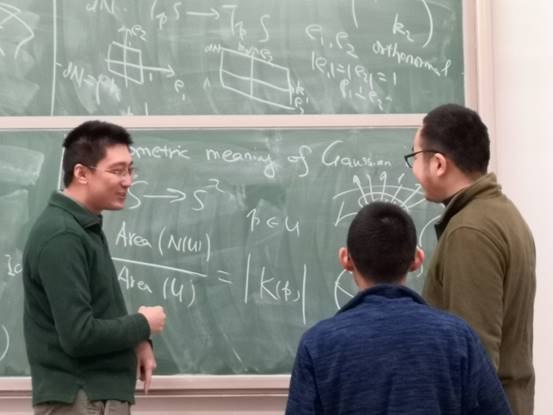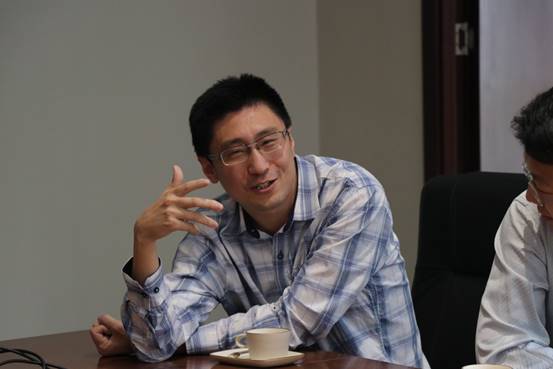Editor’s note:Dr. Dai Songis an associate professor at the School of Mathematics. Since 2017, he has held the position of the class advisor for 30 or so undergraduate students majoring in mathematics, helping them to adapt to college life and improve academic study. The following is an article Dr. Dai wrote to share his view on mathematics talent training
My View one Training Top Talents in Mathematics
As the head teacher of the pioneering Qiushi Class, I have organized several seminars, and also taught the courses of Topics in Mathematical Analysis A, BandDifferential Geometry. After several years of teaching and advisory work in Qiushi Class, I think it is the most important work for a head teacher to create and nurture a scholarly atmosphere starting from the freshmen year. For students who just entered the school, they often show great enthusiasm for learning. If we can cultivate a learning atmosphere at this stage, it will be of great benefit to students’ academic study in the future.

Organizing seminars is one of the effective means to create learning atmosphere. The key is to cultivate the habit of holding and participating in seminars. Now the first Qiushi Class has entered the fourth year, and they have passed on the seminar practice to latecomers.
Due to the limited knowledge of freshmen, in most cases, they are only capable of discussing topics related toMathematical AnalysisandLinear Algebra. Few are able to conduct some difficult exercises, such as Math Competition for College Students. Sometimes, I will lead them to discuss the plane algebraic curves, low-dimensional manifolds, discrete mathematics, number theory and other extracurricular contents only if they are interested.

In the sophomore year, especially after learning Mathematical Analysis, Linear Algebra, Abstract Algebra and Topology, students should be exposed to some in-depth contents. In the first semester of the sophomore year, I supervised two seminars, namely, “Introduction to Fourier Analysis” and “Abstract AlgebraⅡ”. In the second semester, I organized a seminar on “de Rham Theory” where students had a free discussion.
In the junior year, some students participated in more challenging seminars like Algebraic Geometry guided by Yu Xun, Yang Song, Song Jijian and other teachers. In addition, students are encouraged to do some preliminary scientific researches in the junior year with the help of either their academic tutors, head teachers, or other excellent teachers.
Students who are able and willing to stay in Qiushi Class can be said to be elite. We teachers should try our best to explore their potentials. In the final reading report of Topics in Mathematical Analysis A in the second Qiushi Class, I once asked my students to learn some knowledge of sophomore and even junior year. To my surprise, they showed great talents and fulfilled the task very well.
In fact, teachers will also benefit from the seminars. Once a time, while preparing for a seminar concerning Jordan canonical form, I underwent a thorough review of the theory, and gained deeper understanding of it. This experience helped me to cooperate with others and generalize a theorem of Ness in one of my research projects.
In addition, to diversify the content of the seminars, I had to organize seminars that were beyond my research fields like “Abstract AlgebraⅡ”, which requires me to study hard like my students. In this way, to a certain extent, I myself also learned something from the seminars.
Another thing head teachers should pay attention to is students’ mental health. They may suffer from psychological confusions, anxiety and even severe illness, especially for freshmen.
University life is quite different from that of high school. New living and learning environments and demanding courses may all count as burdensome factors. For students who are selected to enter Qiushi Class for their extraordinary math muscles, they face even fiercer competition, complicated interpersonal relationships and more challenging courses, any of which may be the last straw.
Teachers should be fully aware of the possible problems students may encounter and help them to conquer them. I used to tell my students that everyone will encounter difficulties, but as long as we face up to the challenges and continue to work hard, nothing can’t overcome. The head teachers should communicate more with students, other counselors and course teachers, so as to understand the difficulties encountered by the students in time.
Editor: Eva Yin